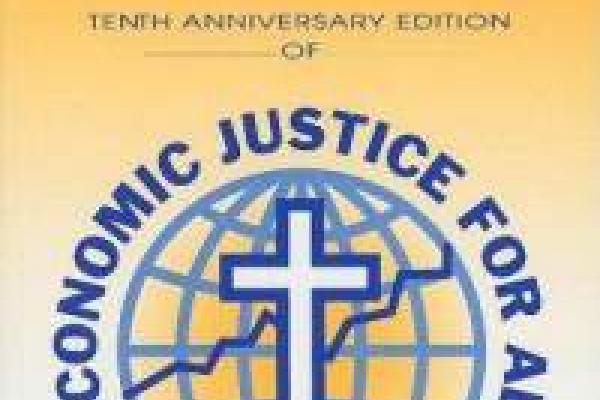The U.S. Conference of Catholic Bishops held their annual meeting this week. Most items on the agenda were internal issues – finance and administrative matters, worship and liturgy, and so on. The one public policy issue was a package of issues related to religious liberty, which included abortion, contraception, and same-sex marriage, as well as repressive anti-immigrant laws. There was apparently no formal discussion of the economic crisis.
While some have been critical of this omission, others, including some bishops, have noted that the church has been vocal and active. They cite Pope Benedict’s “Caritas et Veritate” encyclical in 2009, a recent statement on financial reform from the Pontifical Council for Justice and Peace, and note what the bishops have done in the past few months. These include being founding members of the “Circle of Protection,” urging Speaker John Boehner and Budget Committee Chairman Paul Ryan to follow Catholic teaching in budget decisions, lobbying the supercommittee for deficit reduction that protects the poor, and more.
In September, Conference president Archbishop Timothy Dolan wrote to all bishops to “ask you to continue doing all you can to lift up the human, moral, and spiritual dimensions of the ongoing economic crisis. Widespread unemployment, underemployment, and pervasive poverty are diminishing human lives, undermining human dignity, and hurting children and families. I hope we can use our opportunities as pastors, teachers, and leaders to focus public attention and priority on the scandal of so much poverty and so many without work in our society.”
It’s worth remembering that in 1986, 25 years ago, the bishops at their annual meeting approved a pastoral letter on the economy, “Economic Justice for All.” It was, and still is, a powerful statement of Catholic social teaching on the “important social and moral questions for each of us and for society as a whole” that are raised by our economic life. It’s a letter that the entire church, Catholic or not, should read and affirm.
In an opening section, “Why we write,” the bishops ground their letter: “The life and words of Jesus and the teaching of [God's] Church call us to serve those in need and to work actively for social and economic justice. As a community of believers, we know that our faith is tested by the quality of justice among us, that we can best measure our life together by how the poor and the vulnerable are treated.”
Sections follow on the Christian vision of economic life, the church and the economy, an analysis of selected policy issues, and a commitment to the future. The conclusion to the policy section could be written today. Acknowledging that the reforms they recommend would be expensive in a time of large deficits, they urge tax changes to raise new revenue, and cutting “elements of the military budget [that] are both wasteful and dangerous for world peace.”
The final sentence 25 years ago is one that echoes what the entire church is saying today: “In the end, the question is not whether the United States can provide the necessary funds to meet our social needs, but whether we have the political will to do so.”
Working to generate that political will is what continues to guide the bishops’ actions, and I for one am more pleased that they are putting their teaching into action by being actively engaged in working to protect the most vulnerable than I am concerned that they didn’t write more words.
Duane Shank is Senior Policy Advisor for Sojourners.
Got something to say about what you're reading? We value your feedback!
